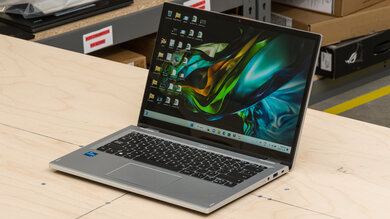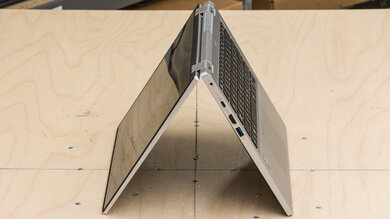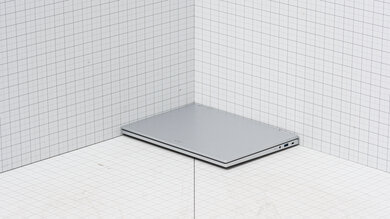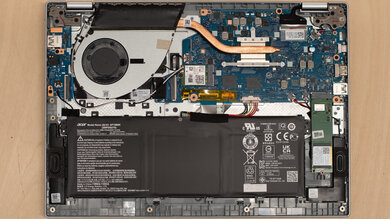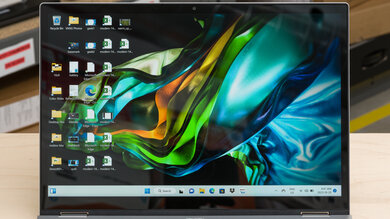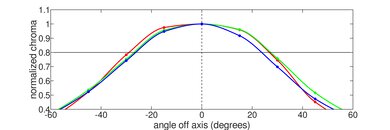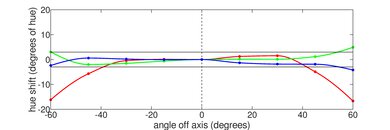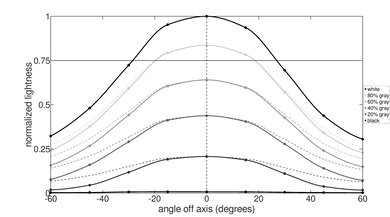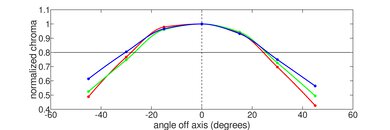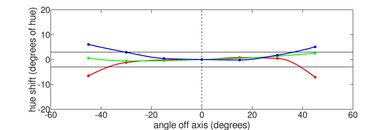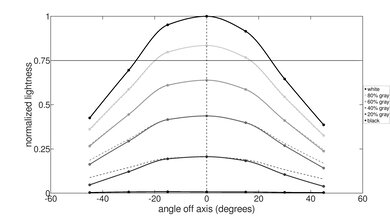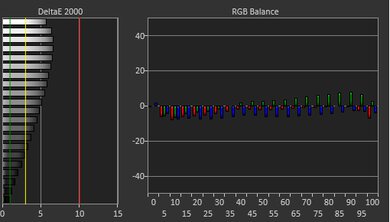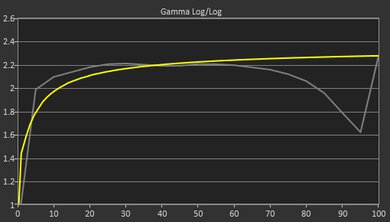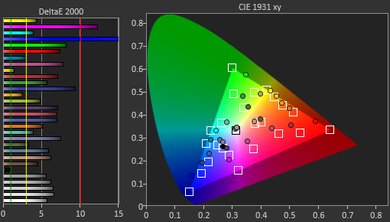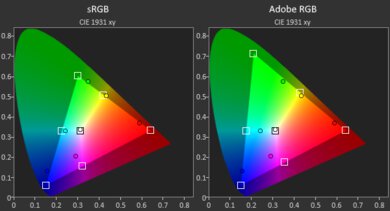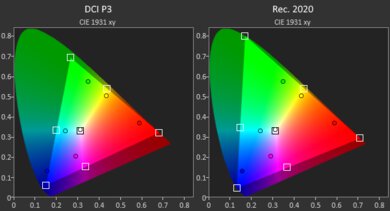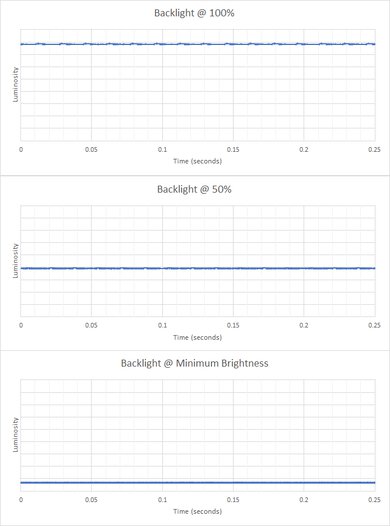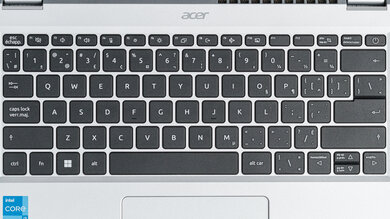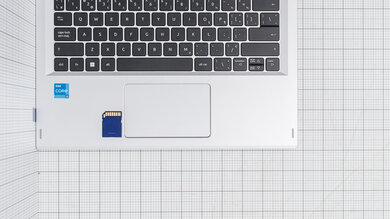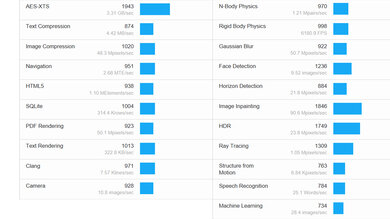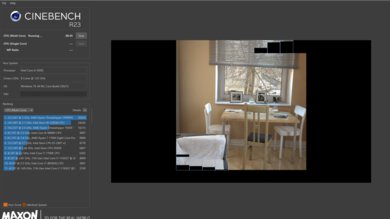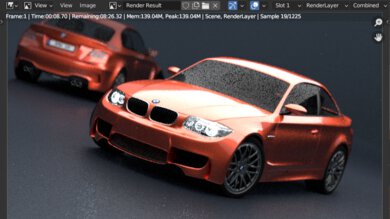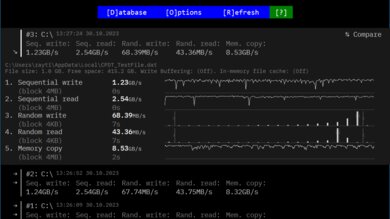The Acer Aspire 3 Spin 14 (2023) is a budget Windows 2-in-1 laptop. It's available with an Intel N100, N200, or Core i3-N305 CPU, which are all power-efficient Alder Lake N-series processors with only E-cores. Memory and storage max out at 8GB and 512GB, respectively. It has a 1080p IPS display, Wi-Fi 6 wireless connectivity, and a 720p webcam. Ports include two USB-As, a USB-C, an HDMI, and a 3.5mm headphone jack. The USB-C supports DisplayPort and charging.
You can see our unit's specifications and the available configuration options in the Differences Between Variants section.
Our Verdict
The Acer Aspire 3 Spin 14 is okay for school use. It feels reasonably well-built, and its compact design makes it easy to carry around. The battery lasts around seven hours of light use, so you only have to plug it in for a short time to get through a typical school day. The overall user experience is so-so; the display looks sharp but dim, and the touchpad is fairly responsive, albeit small. It's only available with low-power Intel CPUs and integrated graphics, so it isn't ideal for students in fields like programming or 3D graphics.
-
Feels reasonably well-built for the price.
-
Easy to carry around.
-
Wide port selection.
-
Dim, washed out display.
-
Battery doesn't last through a typical workday.
-
Low-power CPU and integrated graphics can't handle demanding workloads.
The Acer Aspire 3 Spin 14 isn't designed for gaming. It's only available with low-power CPUs and integrated graphics, which aren't powerful enough to handle gaming. Also, it has a 60Hz display with a slow response time and no VRR support. On the upside, it doesn't get overly hot or loud under load.
-
Doesn't get hot or loud under load.
-
Fast, user-replaceable SSD.
-
Low-power CPU and integrated graphics can't handle demanding workloads.
-
60Hz display with slow response time.
-
No VRR to reduce screen tearing.
-
Only available with up to 8GB of soldered RAM.
The Acer Aspire 3 Spin 14 is mediocre for media consumption. It's very portable, thanks to its compact design, and you can use it in tent or tablet mode since it's a 2-in-1 convertible. Its 1080p display looks sharp; however, the colors are a little washed out, and it doesn't get bright enough to combat glare in well-lit settings. Similarly, the speakers get very loud but sound tinny and unnatural, with no bass. Its battery life is on the shorter side at around five hours of video playback.
-
Easy to carry around.
-
Loud speakers.
-
2-in-1 form factor lets you use it in tent or tablet mode.
-
Dim, washed out display.
-
Battery lasts around five hours of video playback.
-
Speakers sound tinny and unnatural, with no bass.
-
Blacks look gray in dim settings.
The Acer Aspire 3 Spin 14 is mediocre for use as a workstation. It's only available with low-power CPUs and integrated graphics, which aren't powerful enough for demanding workloads. Also, you can only get up to 8GB of soldered RAM. Its 1080p display looks sharp but isn't suitable for color-critical work due to its narrow color gamut. On the upside, it has a fast, user-replaceable SSD and doesn't get hot or loud under load.
-
Doesn't get hot or loud under load.
-
Fast, user-replaceable SSD.
-
Wide port selection.
-
Low-power CPU and integrated graphics can't handle demanding workloads.
-
Only available with up to 8GB of soldered RAM.
-
No Thunderbolt 4.
The Acer Aspire 3 Spin 14 is okay for business use. It feels reasonably well-built and is easy to carry around. Its low-power Intel CPU can handle general productivity tasks like web browsing, text processing, spreadsheets, and presentations. However, you can only get up to 8GB of RAM, which isn't ideal for heavy multitasking. The battery lasts around seven hours of light use, so you only have to plug it in for a short time to get through the day. Unfortunately, the display is dim, making it hard to see in well-lit settings, and the touchpad is small. The webcam's image looks soft and overexposed, but thankfully, voices sound loud and clear over the microphone.
-
Feels reasonably well-built for the price.
-
Easy to carry around.
-
Wide port selection.
-
Dim, washed out display.
-
Battery doesn't last through a typical workday.
-
Mediocre 720p webcam.
- 6.7 School
- 5.3 Gaming
- 6.5 Multimedia
- 6.7 Workstation
- 6.7 Business
Changelog
-
Updated Jan 07, 2025:
We've corrected a mistake in the Style box. The form factor is 2-in-1, not clamshell.
- Updated Jul 23, 2024: Added mention of the Lenovo Yoga 6 13 (2023) as an alternative with longer battery life in the Battery section.
- Updated Dec 07, 2023: Converted to Test Bench 0.8.2.
- Updated Nov 16, 2023: Review published.
- Updated Nov 07, 2023: Early access published.
Differences Between Sizes And Variants
We tested the Acer Aspire 3 Spin 14 (model A3SP14-31PT-34E4) with an Intel Core i3-N305 CPU, 8GB of RAM, and 512GB of storage. The CPU, memory, and storage are configurable; the available options are in the table below.
| Screen |
|
|---|---|
| CPU |
|
| GPU |
|
| Memory |
|
| Storage |
|
| Color |
|
You can see our unit's label here.
Compared To Other Laptops
The Acer Aspire 3 Spin 14 is an okay budget laptop. It feels reasonably well-built; however, its limited RAM and CPU performance makes it only suitable for those with a very light workload. Also, its keyboard and touchpad aren't as good as other laptops in its class, like the Lenovo IdeaPad Slim 3i 15 (2023).
For more options, check out our recommendations for the best budget and cheap laptops, the best Windows laptops, and the best 2-in-1 laptops.
The Acer Aspire 3 Spin 14 (2023) and the Dell Inspiron 14 (2023) are both 14-inch Windows laptops; however, the Aspire is a 2-in-1 convertible, while the Inspiron is a more traditional clamshell laptop. The Inspiron is better for most uses; it has a brighter and sharper QHD+ display option, a more spacious and tactile keyboard, and a larger touchpad. It also has a fingerprint sensor and a wider port selection that includes an SD card reader and Thunderbolt 4 support. The Inspiron is available with much faster Intel 13th Gen U-series CPUs, and its battery lasts about two hours longer when performing light productivity tasks.
The Lenovo IdeaPad Slim 3i 15 (2023) is much better than the Acer Aspire 3 Spin 14 (2023) for most uses. The IdeaPad has a better keyboard, touchpad, and webcam. Additionally, it's available with faster CPUs and more RAM, so it can handle more demanding workloads with fewer slowdowns. However, the IdeaPad is only a clamshell model, while the Aspire is a 2-in-1 convertible, meaning you can use it as a tablet. The Aspire's battery lasts longer, though neither laptop can last through a typical eight-hour workday.
The Acer Aspire 3 Spin 14 (2023) and the MSI Modern 14 (2023) are both 14-inch Windows laptops. The Aspire is a 2-in-1 convertible, while the Modern is a more traditional clamshell laptop with no touch input support. The Modern has a more tactile keyboard, a larger and more responsive touchpad, and a wider port selection. Also, it's available with much faster Intel 13th Gen U-series CPUs and more RAM, so it can handle more demanding workloads with fewer slowdowns. The Aspire has longer battery life, though neither laptop can last through a typical 8-hour workday.
The Lenovo IdeaPad Flex 5i 14 (2022) is much better than the Acer Aspire 3 Spin 14 (2023) for most uses. The IdeaPad feels sturdier and provides a better user experience overall, as it has a more spacious and tactile keyboard, a larger touchpad, and a better 1080p webcam. It also has biometrics in the form of a fingerprint sensor and Thunderbolt 4 support, and it's available with significantly faster Intel 12th Gen U-series CPUs.
The Lenovo Yoga 6 13 (2023) and the Acer Aspire 3 Spin 14 (2023) are both budget 2-in-1 convertible laptops. The Yoga 6 feels more premium and provides a better user experience overall, sporting a sturdier build, a brighter and more colorful display, a more comfortable keyboard, and a larger, more responsive glass touchpad. It also has more processing power and longer battery life.
Test Results
The Acer Aspire 3 Spin 14 looks very basic and doesn't stand out in any way design-wise. It has a silver-color plastic chassis with sharp corners and edges, somewhat thick bezels, an island-style keyboard with black keycaps, and a small, centered touchpad. On the bottom, you can find the speakers near the front and air vents near the back. There are also air vents on the back of the laptop.
The hinges are passable. They have a wide range since this is a 2-in-1 convertible, so you can flip the screen into tent or tablet mode. They're relatively stable; there's some wobbling when moving around or typing aggressively, but it's not too bad. There's too much resistance to open the lid with one hand.
The Acer Aspire 3 Spin 14's serviceability is mediocre. Accessing the internals is relatively easy; you only need to remove ten Philips screws and undo the clips with a prying tool. Undoing the clips takes a fair amount of effort, and you have to be careful, as the clips are a bit fragile and might break if you apply a lot of force. The storage slot supports M.2 2280 PCIe Gen 4 SSDs.
You can see the user manual here.
The Acer Aspire 3 Spin 14's display looks sharp and provides just enough space for split-screen multitasking. Its 16:10 aspect ratio is great for productivity; it gives you slightly more vertical space than a standard 16:9 screen, so you can see more information when reading a document or website, reducing the need to scroll.
The display doesn't get very bright. It's okay for most indoor environments, but visibility can be an issue in bright lighting conditions, especially in direct sunlight. It gets very dim at the lowest brightness setting, which helps reduce eye strain when viewing content in the dark.
The display's reflection handling is mediocre. Its glossy finish doesn't do much to diffuse or reduce the intensity of bright light sources, like a lamp or open window during the day. The reflections are visible even with the screen at maximum brightness.
The display's horizontal viewing angle is okay. The image dims and washes out quickly as you move to the side. You can still share the screen with someone else for text documents and other casual content; however, it's best to be directly in front of the screen if you need perfect accuracy for color-critical work.
The display's vertical viewing angle is okay. Like the horizontal viewing angle, the image dims and washes when viewing from above and below, so you need to look at the screen more or less straight on to see an accurate image, which can be challenging in tight places where you don't have much room to tilt the screen, like on a bus or airplane.
The display's out-of-the-box accuracy is bad. Most colors are inaccurate due to the panel's narrow color gamut, and the white balance is visibly off, especially at higher brightness levels. The color temperature is a tad warmer than the standard 6500K target, but the difference is too small to make much difference visually. The gamma doesn't follow the sRGB curve; bright scenes are too bright, while dark scenes are too dark.
The display's color gamut is bad. It doesn't even have full coverage of the commonly used sRGB color space, meaning most content will look slightly washed out, with colors like pure green and red looking darker and less saturated. This panel isn't ideal for color-critical work like photo and video editing.
The Acer Aspire 3 Spin 14's keyboard is sub-par. Its layout is relatively spacious and easy to get used to. The keycaps feel okay in quality; they're reasonably stable, but their slightly textured finish makes them slippery. The keys have a fair amount of key travel, though they could be a little more tactile. Backlighting is optional, so check the specifications if it's important to you.
The touchpad is mediocre. It's pretty small, sometimes making dragging and dropping over long distances or zooming in and out of images challenging. It tracks all movements and gestures well, though the edges seem a little less responsive than the center. There are no issues with palm rejection. You can only click in the bottom half of the touchpad; the buttons feel satisfyingly clicky.
The speakers get pretty loud with minimal compression artifacts at high volume levels. However, they sound tinny and unnatural, with no bass whatsoever.
The webcam's video quality is mediocre. The image looks soft, noisy, and slightly overexposed. Also, the colors look a tad unnatural. On the upside, voices sound loud and clear over the microphone with no static background noise.
The Acer Aspire 3 Spin 14 has a great port selection. Both USB-A ports support USB 3.2 Gen 1 data transfer speed of up to 5Gbps. The USB-C supports USB 3.2 Gen 2 data transfer speed (up to 10Gbps), charging, and DisplayPort.
The wireless adapter is an Intel Wi-Fi 6 AX101.
The Acer Aspire 3 Spin 14 is available with the following CPUs:
- Intel Processor N100 (4 cores/4 threads, up to 3.4GHz, 6MB cache)
- Intel Processor N200 (4 cores/4 threads, up to 3.7GHz, 6MB cache)
- Intel Core i3-N305 (8 cores/8 threads, up to 3.8GHz, 6MB cache)
All three are low-power CPUs from Intel's Alder Lake-N series. Unlike the higher-end hybrid processors, these chips only have efficiency cores and don't support Hyper-Threading. They can handle general productivity tasks like web browsing and video playback just fine, but don't expect to do anything remotely intensive. The performance difference between the N100 and the N200 is very minimal. Unless you have an extremely light workload, getting the top-end Core i3-N305 is best, as its higher core count will result in a smoother experience.
The Acer Aspire 3 Spin 14 is only available with Intel UHD graphics. This low-power integrated GPU can only handle light productivity tasks like text processing, web browsing, and video playback.
You can configure this laptop with 4GB or 8GB of RAM. Even if you have a light workload, getting a model with 8GB of RAM is best, as it'll provide a significantly smoother experience with fewer slowdowns than a 4GB model. The memory isn't user-replaceable.
You can configure this laptop with 128GB, 256GB, or 512GB of storage. The SSD is user-replaceable; the slot supports M.2 2280 PCIe Gen 4 SSDs.
The Acer Aspire 3 Spin 14 has a decent overall score in Geekbench 5. The Intel Core i3-N305's multi-thread performance isn't bad because it has eight cores, but its single-thread performance is low compared to other Intel CPUs with P-cores. It can handle general productivity tasks like web browsing and text processing; just don't expect it to be as snappy as a higher-wattage CPU with faster performance cores. The Intel N100 and N200 are much slower in multi-threaded workloads, as they only have four cores. As for GPU computing tasks, the Intel UHD integrated graphics perform poorly and aren't suitable for demanding workloads.
The Intel Core i3-N305 isn't ideal for heavy workloads, as it's a low-power CPU with only efficiency cores. If you need to do any rendering work or just heavy multitasking, getting a laptop with an H-series processor is best, like the Dell XPS 15 (2023).
The Acer Aspire 3 14 performs poorly in Blender. The CPU and integrated GPU are far too slow for any practical purposes. If you need to render images in Blender, getting a laptop with a dedicated GPU is best. Even an entry-level GPU like an NVIDIA GeForce GTX 1650 can complete renders faster than almost any CPU.
The storage drive performance is outstanding. It isn't particularly fast for a PCIe Gen 4 SSD, but it's still more than adequate for a budget-friendly general productivity laptop. The system boots up, launches apps, and transfers files quickly.
The Acer Aspire 3 Spin 14's battery life is mediocre. Even if you only perform light productivity tasks, you'll have to plug the laptop in for a short time to get through a typical work or school day. Thankfully, it charges pretty quickly. Check out the Lenovo Yoga 6 13 (2023) if you want a similar laptop with a longer battery life.
Borderlands 3 isn't playable on the Acer Aspire 3 Spin 14. The CPU and its integrated GPU can't handle such a demanding game. You can expect the same performance in other similarly intensive titles.
Civilization VI runs poorly. It's playable at 1080p with low settings, but you'll experience some stutters and long turn times. The game likely won't even run on models with an Intel N100 or N200 CPU.
Counter-Strike 2 isn't playable at 1080p. The gameplay is extremely choppy, even with low settings. The game likely won't run on models with an Intel N100 or N200 CPU.
Shadow of the Tomb Raider isn't playable, even with low graphical settings. Again, the low-power Intel CPU and its integrated graphics can't handle such a demanding title.
The keyboard is cool when idle and only gets mildly warm under load. The fan is audible at full speed, but it's still relatively quiet and not bothersome.
The Acer Aspire 3 Spin 14's performance over time is outstanding. Neither the CPU nor the GPU throttles under load.
The Acer Aspire 3 Spin 14 has many pre-installed applications, including:
- Acer Jumpstart: Contains basic information about the laptop and its features.
- Acer Product Registration: Lets you register your laptop with Acer for warranty purposes.
- App Explorer: Lets you explore the pre-installed apps on the laptop and contains ads for other apps.
- Care Center: Keeps drivers up to date.
- Evernote: Note-taking app.
- ExpressVPN: Link for virtual private network service.
- Hearts Deluxe Card game.
- McAfee LiveSafe: Antivirus and internet security software.
- Quick Access: Lets you quickly access toggles for settings like Wi-Fi, Bluetooth, Bluelight filter, USB charging, and Network Sharing.
- Solitaire: Card game.
- Solitaire Collection: Free online Solitaire Collection games.
- Spades: Card game.
- User Experience Improvement Program: Gathers information about how users use the laptop to improve future products.
Some Acer Aspire 3 Spin 14 models come with Windows in S mode, a stripped-down version of the operating system designed for low-end hardware. Windows S mode only allows installation of apps from the Windows Store. You can switch out of S Mode free of charge if you need to install apps from other sources, but this change is a one-way street, meaning you can't go back to S Mode after activating the full version of Windows.
Comments
Acer Aspire 3 Spin 14 (2023): Main Discussion
Let us know why you want us to review the product here, or encourage others to vote for this product.
Update: We’ve added a comparison between these headphones and the Skullcandy Dime 3 True Wireless in Bluetooth.


